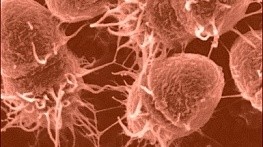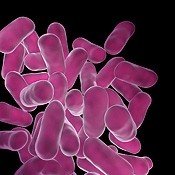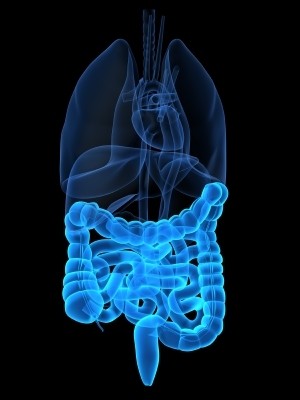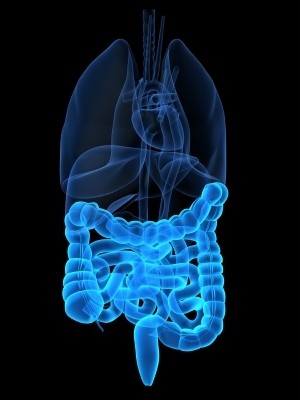Bacteria supplements may affect weight gain: Rat study extends microflora-obesity link

According to findings published in the British Journal of Nutrition, supplementation of a high-energy-dense diet with the bacterial strain Lactobacillus plantarum resulted in less weight gain, compared to rats fed only the high energy diet.
Furthermore, animals fed the high energy diet and supplemented with less friendly Escherichia coli bacteria experienced significantly higher levels of body fat, compared to the control animals, report researchers from Lund University in Sweden.
“Although not totally conclusive, the present results indicate that it may be possible to affect host [body regulation] by bacterial supplementation to rats consuming a high-energy-dense diet,” wrote the authors, led by Caroline Karlsson, a PhD student in the Division of Applied Nutrition and Food Chemistry.
The study builds on earlier studies that have linked gut microflora and obesity, an emerging area of science that may one day lead to nutritional approaches to modify gut microflora and influence a person’s weight and body fat levels.
Potential
With the World Health Organization estimating that by 2015 there will be more than 1.5 billion overweight consumers, incurring health costs beyond $117 billion per year in the US alone, the opportunities for a scientifically-substantiated weight management food product are impressive.
The first link between gut microflora and weight was presented in a breakthrough paper published in Nature in December 2006 (Vol. 444, pp. 1022-1023, 1027-1031) by Jeffrey Gordon’s group at the University of Washington in St Louis reported that microbial populations in the gut are different between obese and lean people, and that when the obese people lost weight their microflora reverted back to that observed in a lean person, suggesting that obesity may have a microbial component.
Fitting the hypothesis
Commenting independently on the new study, Professor Patrice Cani, a leading researcher in the area of gut microflora from the Université Catholique de Louvain in Belgium, told NutraIngredients-USA that the paper was interesting. “This paper is one of the first showing – at least in rodents – the impact of specific modulation of the gut microbiota on body weight and fat mass development, in a long term study,” he said.
Prof Cani also noted that the new findings are “in line with our hypothesis that specific gut bacteria are associated/correlated with fat mass development upon a high-fat diet”.
The mechanisms leading to the changes in fat mass and body weight are still unknown, said Prof Cani, and this an ongoing area of study.
New data
Karlsson and her co-workers consider if a mother’s dietary habits during pregnancy, and continuing through breast feeding, to the feeding pattern of the offspring could influence the health and physiology of the offspring.
Using pregnant rats, the Swedish researchers divided the animals into three groups: All the animals were fed a high-energy diet, while one groups was supplemented with L. plantarum DSM 15313 (provided by Probi AB, Sweden) and a second group was supplemented with E. coli for six months.
At the end of the study the researchers report that the L. plantarum supplemented animals had significantly lower weight gain than both the control and E. coli-supplemented groups. This difference was observed at birth (indicating a potential influence of the mother’s diet) with the L. plantarum pups having an average birth weight of 7.5 grams, compared with 8.2 and 9.6 grams for the control and E.coli animals, respectively.
After six months, a similar trend was observed, with L. plantarum animals having an average weight of 304 grams, compared with 340 and 352 grams for the control and E.coli animals, respectively.
Gut microflora
Analysis of the animals’ microflora showed distinct differences between the groups, with the L. plantarum animals having the highest level of bacterial diversity, compared with the other two groups. The E.coli group had higher counts of Enterobacteriaceae and a lower overall diversity, added the researchers. The dominant species in all the animals were Firmicutes, Bacteroidetes and Verrucomicrobia.
“In the present 6-month study, long-term bacterial supplementation seemed to affect the weight development of the rats, without having any effect on the feed consumption,” wrote the researchers. “Furthermore, […] the L. plantarum group had significantly lower body weight compared with the control group.
“Importantly, L. plantarum decreased body-weight gain, and E. coli increased body fat, the latter being consistent with the hypothesis of Cani et al., which suggests increased body-weight gain by high-fat feeding and an increased load of Gram-negative bacteria,” they added.
Probiotics
According to the FAO/WHO, probiotics are defined as "live microorganisms which when administered in adequate amounts confer a health benefit on the host".
Source: British Journal of Nutrition
Published online ahead of print, doi: 10.1017/S0007114511001036
“Effects on weight gain and gut microbiota in rats given bacterial supplements and a high-energy-dense diet from fetal life through to 6 months of age”
Authors: C.L.J. Karlsson, G. Molin, F. Fak, M.-L. Johansson Hagslatt, M. Jakesevic, A. Hakansson, B. Jeppsson, B. Westrom, S. Ahrne















